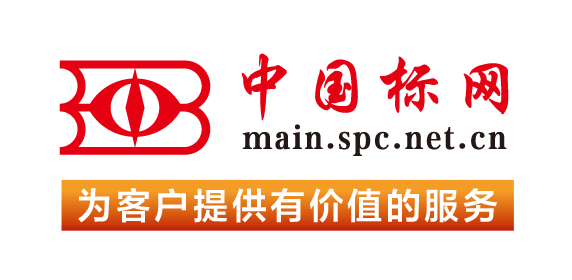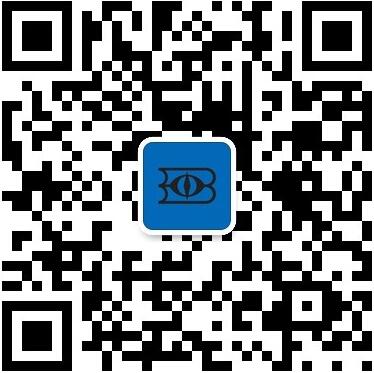This guide provides Definitions of the concepts of application portability, application interoperability, data portability, and user portabilityDescriptions of services needed in the areas of application portability, application interoperability, data portability, and user portabilityA survey of existing standards that address these objectivesIdentification of those areas where formal standards do not exist and discussion of near-term strategies for filling these gapsGuidance on assembling… read more these standards into profiles This guide includes no mandatory requirements. read less
POSIX.1-2024 defines a standard operating system interface and environment, including a command interpreter (or ``shell’’), and common utility programs to support applications portability at the source code level. It is intended to be used by both application developers and system implementors. POSIX.1-2024 comprises four major components (each in an associated volume): 1. General terms, concepts, and interfaces common to all volumes of POSIX.1-2024, including utility conventions and C-language… read more header definitions, are included in the Base Definitions volume of POSIX.1-2024. 2. Definitions for system service functions and subroutines, language-specific system services for the C programming language, function issues, including portability, error handling, and error recovery, are included in the System Interfaces volume of POSIX.1-2024. 3. Definitions for a standard source code-level interface to command interpretation services (a ``shell’’) and common utility programs for application programs are included in the Shell and Utilities volume of POSIX.1-2024. 4. Extended rationale that did not fit well into the rest of the document structure, containing historical information concerning the contents of POSIX.1-2024 and why features were included or discarded by the standard developers, is included in the Rationale (Informative) volume of POSIX.1-2024. The following areas are outside of the scope of POSIX.1-2024: --Graphics interfaces --Database management system interfaces --Record I/O considerations --Object or binary code portability --System configuration and resource availability POSIX.1-2024 describes the external characteristics and facilities that are of importance to application developers, rather than the internal construction techniques employed to achieve these capabilities. Special emphasis is placed on those functions and facilities that are needed in a wide variety of commercial applications. The facilities provided in POSIX.1-2024 are drawn from the following base documents: --IEEE Std 1003.1-2017 (POSIX.1-2017) --IEEE Std 1003.26-2003 (POSIX.26-2003). ISO/IEC 9899: 2018, Programming Languages -- C (C17) --ISO/IEC TR 24731-2: 2010, Programming languages, their environments and system software interfaces — Extensions to the C library — Part 2: Dynamic Allocation Functions --The Open Group Standard, 2021, Additional APIs for the Base Specifications Issue 8, Part 1 --The Open Group Standard, 2022, Additional APIs for the Base Specifications Issue 8, Part 2 read less
This standard is applicable to the development and use of conformance testing methodologies for POSE standards. The generic test methods identified in this standard shall be used in conjunction with test methods identified for a specific standard. This standard is intended for use by working groups developing test methods for POSM standards, developers of POSM test methods, and users of POSIX test methods. The purpose of this standard is to define general rules for developing test assertions… read more and related test methods for measuring conformance of an implementation to POSE standards. Test methods may include POSM Conformance Test Suites (PCTS), POSE Conformance Test Procedures (PCTP), and audita of POSM Conformance Documents (PCD). Testing conformance of an implementation to a standard includes testing the claimed capabilities and behavior of the implementation with respect to the conformance requirements of the standard. Test methods are intended to provide a reasonable, practical assurance that the implementation conforms to the standard. Use of these test methods will not guarantee conformance of an implementation to the standard; that normally would require exhaustive testing (see 4.2.11, which is impractical for both technical and economic reasons. read less
This standard defines a standard Ada language binding to ISO/lEC 9945-1: 1990 {2}, hereinafter referred to as "POSIX.1 [2]" to support application portability at the source code level. It is intended to be used by both application developers and system implementors. The focus of this standard the Ada interface to the is POSIX.1 {2} standard. The POSIX.1 {2} standard was initially defined using the C programming language. A language-independent definition of POSIX.1 {2} is under development, but… read more at this time has not achieved a level of definition suitable as a starting point for this document. This standard is comprised of three major components:- Definitions for terminology and concepts, and definitions and specifications that govern program structures, language-system interaction, and related requirements- Definitions of the specific Ada interfaces to POSIX.1 {2} system services presented in the form. of Ada packages- Interpretations of Ada semantics with respect to POSIX.1 {2} read less
IEEE Std 1003.1-201x defines a standard operating system interface and environment, including a command interpreter (or "shell"), and common utility programs to support applications portability at the source code level. It is intended to be used by both applications developers and system implementors.IEEE Std 1003.1-201x comprises four major components (each in anassociated volume): 1. General terms, concepts, and interfaces common to all volumes of IEEE Std 1003.1-201x, including utility… read more conventions and C-language header definitions, are included in the Base Definitions volume of IEEE Std 1003.1-201x. 2. Definitions for system service functions and subroutines, language-specific system services for the C programming language, function issues, including portability, error handling, and error recovery, are included in the System Interfaces volume of IEEE Std 1003.1-201x. 3. Definitions for a standard source code-level interface to command interpretation services (a "shell") and common utility programs for application programs are included in the Shell and Utilities volume of IEEE Std 1003.1-201x. 4. Extended rationale that did not fit well into the rest of the document structure, containing historical information concerning the contents of IEEE Std 1003.1-201x and why features were included or discarded by the standard developers, is included in the Rationale (Informative) volume of IEEE Std 1003.1-201x.The following areas are outside of the scope of IEEE Std 1003.1-200x: * Graphics interfaces * Database management system interfaces * Record I/O considerations * Object or binary code portability * System configuration and resource availabilityIEEE Std 1003.1-200x describes the external characteristics andfacilities that are of importance to applications developers, ratherthan the internal construction techniques employed to achieve thesecapabilities. Special emphasis is placed on those functions andfacilities that are needed in a wide variety of commercial applications. read less
This standard establishes a set of Realtime and Embedded Environment Profiles based on ISO/IEC 9945:2003 {3}, IEEE Std 1003.26(tm)-2003 {4}, ISO/IEC 14519:2001 {5}, and related standards specifying foundations for realtime applications. It is a revision of the previous IEEE Std 1003.13-1998, which established Realtime Profiles based on ISO/IEC 9945-1:1990, as amended by IEEE Std 1003.1b(tm)-1993, IEEE Std 1003.5b(tm)-1996, and ISO/IEC 9945-2:1993. Both C {2} and Ada {1} language application… read more program interfaces are addressed in this standard. The Application Environment Profiles (AEPs) specified herein are appropriate for the development and execution of realtime or embedded applications using the services and utilities provided by standards called out in this standard. read less
This work activity will extend the system interfaces defined by 1003.1 (as amended by 1003.1b, 1003.1c, and 1003.1i) to include the following additional facilities required by realtime applications: an efficient process creation mechanism, additional realtime scheduling policies, interfaces for execution time monitoring, interfaces for interacting with special devices, interfaces for improving I/O performance, and timeouts for blocking functions. This standard will not change the base standard… read more which it amends (including any existing amendments) in such a way as to cause implementations or strictly conforming applications to no longer conform. read less
This standard defines extensions to POSIX.1 {2} to support application portability at the source-code level. It is intended to be used by both application developers and system implementers. The scope of this standard is to define a portable application interface for applications with realtime constraints requiring the ability to control special devices from the application itself. The intent is to take existing realtime operating system practice and add it to the POSIX family of standards.… read more Specifically within the scope is to define interfaces which do not preclude high-performance implementations on traditional uniprocessor realtime systems, as well as on multiprocessors. Wherever possible, the requirements of other application environments were included in the interface definition. read less
This document is part of the POSIX series of standards for applications and user interfaces to open systems. It defines the Ada language bindings as package specifications and accompanying textual descriptions of the applications program interface (API). This standard supports application portability at the source code level through the binding between ISO 8652:1995 (Ada) and ISO/IEC 9945-1:1990 (IEEE Std 1003.1-1990 (POSIX), as amended by IEEE Draft Std 1003.1g. This standard covers the… read more Detailed Network Interface (DNI) for the X/Open Transport Interface (XTI) and BSD sockets. read less
 我的标准
我的标准 购物车
购物车 400-168-0010
400-168-0010











 对不起,暂未有相关搜索结果!
对不起,暂未有相关搜索结果!













